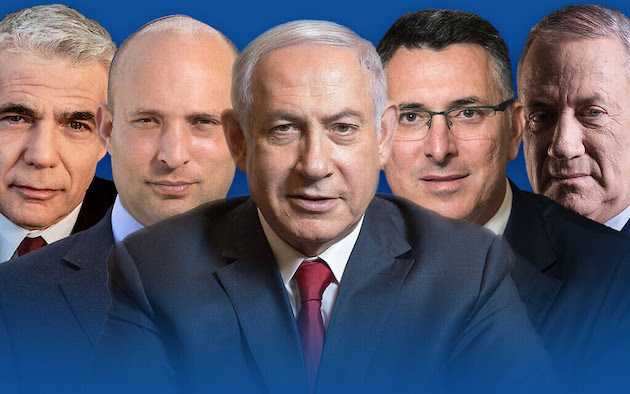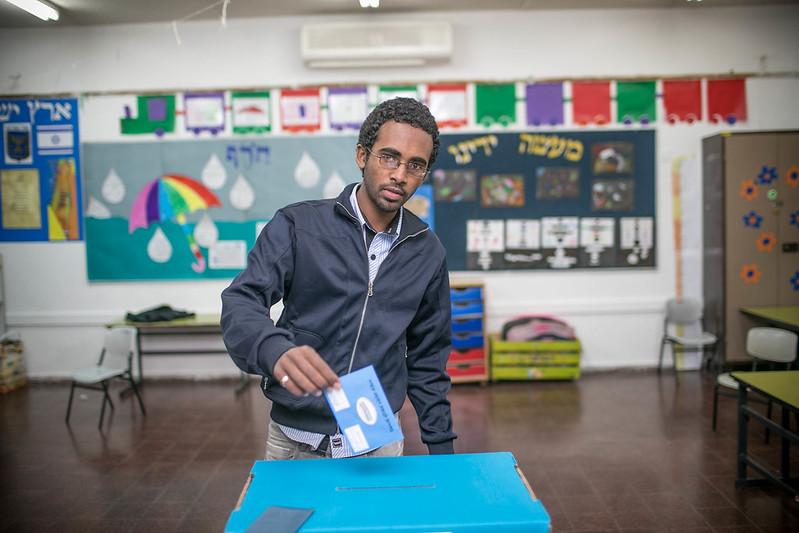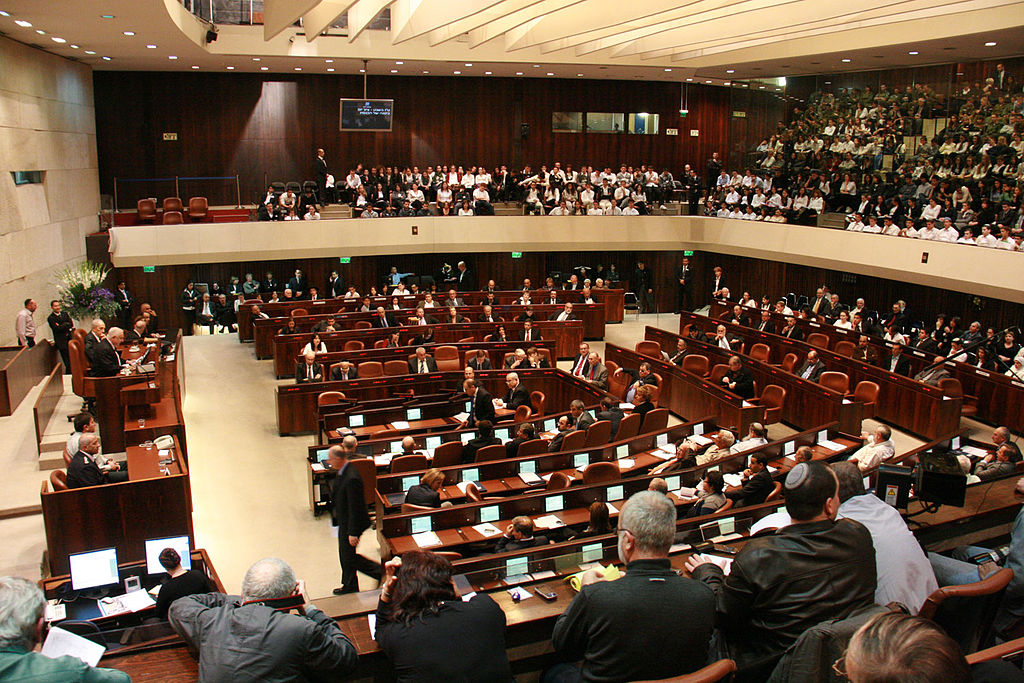
In about two weeks, Israelis will head to the polls to vote in the country’s fourth elections in the past two years. The last time Israel voted was March 2020 (around the time the global pandemic started). This election resulted in an agreement between Prime Minister Benjamin Netanyahu of the Likud Party and Benny Gantz, leader of the Blue and White party, to form a unity government.
1/ #Israel 🇮🇱 is heading back to the polls for its fourth #elections in 2 years on March 23. (Fourth time is a charm?)
— Unpacked (@JewishUnpacked) March 8, 2021
Here's why #Israelis are voting yet again and why it matters for the #Jewish state.
The two leaders said they agreed to join forces in order to confront the pandemic and accompanying economic crisis. Netanyahu was sworn in as prime minister, while Gantz was sworn in as “alternate prime minister” and minister of defense. Under the terms of their agreement, Gantz was supposed to take over as prime minister for Netanyahu on November 17, 2021.
However, the plan for “unity” unraveled on multiple levels. As the two parties bickered on how to govern, Covid cases reached record highs and the economy was devastated by the pandemic. In December 2020, the Knesset failed to pass an annual budget by the legal deadline, which led to the dissolution of the government and another round of elections.
As Israelis prepare to head to the polls, we wanted to understand how the country reached the point of holding its fourth election in two years and why it matters for the Jewish state. We reached out to Israeli political experts Ittay Flescher, Sara Hirschhorn and Uri Pilichowski to get the answers. Read below to see we found out. But first, let’s look at the tone in Israel by unpacking a few campaign ads.
Campaign Ads:
Check out the following campaign ads to gain a deeper understanding of the elections:
Joint List:
In this ad, several Arab citizens blame Netanyahu for the disproportionately high rates of crime and violence faced by Israel’s Arab community and accuse the prime minister of turning a blind eye to the problem. “Our children have the right to live in safety,” one Arab Israeli says. Another asserts, “It’s our right to build a future in our homeland.”
Labor:
Set to the tune “Hava Nagila,” this ad calls for progressive social change in Israel. “The reform in the Supreme Court with regard to conversation is just the beginning,” the ad states, referring to the Israeli Supreme Court’s recent decision to recognize non-Orthodox conversions. The ad goes on to highlight the party’s priority issues, including civil marriage, public transportation on Shabbat and equal rights for the LGBTQ+ community.
Likud:
In this ad, Netanyahu persuades a group of Israelis dressed in Purim costumes to receive the Covid vaccine. Netanyahu promises that “Israel will be the first country to get out of the Corona crisis… Soon we’ll return to the life we knew and loved.”
New Hope:
In this campaign ad, the New Hope party underscores its message of change. Speaking to Israeli voters who oppose Netanyahu, the ad states, “Everyone wants a change. We’re going to do it…. We will change the reality in Israel, and we will form a strong and stable government.”
United Torah Judaism:
This ad begins with examples of media attacks against the Haredi community related to violations of Covid-19 restrictions by some Haredim. The ad then highlights values important to the Haredi community, including Torah, education and family, concluding with the line, “First of all, Haredi.”
Yesh Atid:
This ad opens with a clip of Netanyahu saying at a campaign rally that the nation wants “a stable right-wing government…without this sickness.” The ad goes on to accuse Netanyahu of calling everyone who is not voting for him a “sickness” and demands he apologize, adding “The time has come to end the division.”
To see more campaign ads, check out the following messages from:
- Meretz
- The Religious Zionism party
- Shas
- Yamina
- Yisrael Beiteinu
- This jingle from United Torah Judaism

How We Got Here
Netanyahu and Gantz blamed one another for the collapse of the latest Knesset and the need for new elections. Technically, the government dissolved when Netanyahu refused to pass the 2021 budget, violating his coalition agreement with Gantz. However, Netanyahu blamed Gantz for the breakdown, claiming that Blue and White refused to allow Likud a say in making future political appointments.
Critics argue Netanyahu, who has been on trial for corruption since last year, effectively forced the Knesset to dissolve to protect himself from prosecution: if Netanyahu remains Prime Minister, he could avoid going to jail if he is found guilty of corruption or even have his trial completely halted through a majority vote in the Knesset.
How Israeli Elections and Coalitions Work
Israel’s Knesset has 120 seats. Unlike the U.S. Congress (which has both the House of Representatives and Senate and represents citizens of each state and district), the Knesset is Israel’s single governing body, and the entire Jewish state comprises one electoral district. Each voter casts one vote for a political party (not a specific candidate) to represent them in the Knesset.
Prior to the election, each party submits a list of candidates in rank order for Knesset membership. The parties gain a particular number of seats based on the proportion of the vote they receive; those seats are then filled by the candidates on the lists in the order provided. However, a party must earn at least 3.25% of the vote to be able to enter the Knesset; this is known as the electoral threshold.
A total of 39 parties registered to run in the upcoming election; of these, 13 are predicted to have a realistic chance of clearing the electoral threshold and getting Knesset seats.
The government’s executive branch arises out of this process. With 120 total Knesset seats, a majority of 61 seats are needed to form a government. No single party has ever won an absolute majority in the Knesset; therefore, several parties must join together in a coalition to form the “government” (aka: the executive branch).
Israel’s president (currently Reuven Rivlin) chooses the Knesset member who is most likely to form a coalition (this is usually the leader of the party that received the most votes); that person has six weeks to build a coalition with other willing parties. If this coalition is approved by a majority of Knesset members, that person becomes the prime minister. Once the coalition is decided, the rest of the Knesset members become the “opposition.”
Although Israel’s national elections officially take place every four years, the Knesset can decide to dissolve itself and hold new elections at any time by a simple majority vote. The last time the Knesset lasted for the full four-year term was more than 30 years ago. On the other hand, the Knesset can also vote to extend the four years under special circumstances: this happened in 1973 when Golda Meir continued serving as prime minister during the Yom Kippur War.

Top Issues and Political Parties In the 2021 Election
In an interview, Ittay Flescher, educational director of Kids4Peace Jerusalem and the Jerusalem correspondent for Plus61J Media, said that three of the issues most important to Israelis this time around are Netanyahu, Covid-19 and tensions surrounding the Haredi community.
In terms of Netanyahu, Flescher said voters are divided on the question of Netanyahu’s character and whether someone who faces multiple corruption charges should be allowed to continue serving as prime minister. Netanyahu has been Israel’s prime minister for the past 12 years and is the Jewish state’s longest-serving prime minister.
Some of the parties — including Likud, the Religious Zionism party and the Haredi parties United Torah Judaism and Shas — have said they would join a coalition led by Netanyahu. Others, such as the Joint List, Labor, New Hope, Meretz, Yesh Atid, Yisrael Beytenu and Blue and White, have said they are unwilling to sit with Netanyahu. (Visit the Israel Democracy Institute to learn more about each party.)

Sara Hirschhorn, a visiting professor of Israel studies at Northwestern University, said that one reason why Netanyahu has remained in power for over a decade is because “people don’t see a credible alternative.” She underscored that Netanyahu “has essentially kept people safe” and preserved the status quo of life in Israel, noting that the fact that “buses aren’t blowing up” is good enough for some Israelis.
In terms of Covid-19, Flescher said the government’s handling of the pandemic could influence Israeli voters to vote either for or against Netanyahu and the parties in the unity government. On the one hand, critics of Netanyahu argue his government handled the pandemic terribly, with several ministers foiling the rules and Israel experiencing a higher death toll from the virus compared to many countries.
On the other hand, Israel leads the world in vaccinations, with Netanyahu declaring in an interview with Fox News last week that Israel was “the first country in the world to emerge” from Covid-19 and put the pandemic behind it.
As far as issues surrounding the Haredi community, Jonathan Rynhold, a political science professor at Bar-Ilan University in Tel Aviv, wrote that critics of Netanyahu accuse the prime minister of “treating the Haredim with kid gloves” in response to violations of lockdown rules in parts of the Haredi community.
“As critics see it, Netanyahu’s refusal to implement a local lockdown in Haredi areas to contain the virus led to longer nationwide lockdowns that caused severe economic hardship to many ordinary Israelis,” Rynhold explained.
While Rabbi Uri Pilichowski, an educator and resident of one of Israel’s West Bank settlements, said in an email that security was one of Israelis’ top voting priorities, Flescher said issues like peace with the Palestinians, security and checkpoints are not as much of a focus in this election as they have been previously, adding that much of the conversation has shifted to Covid-19 and the accompanying economic fallout.
Recent polls by Israel’s Kan News and Channel 12 News have shown Likud leading with 28 or 29 seats, followed by the centrist Yesh Atid party (led by Yair Lapid) with 19 or 20 seats. They were followed by New Hope, Yamina, Joint List, Shas, United Torah Judaism and Yisrael Beytenu. The two polls also showed no clear path for either the “pro-Netanyahu” or “anti-Netanyahu” bloc of parties to form a majority coalition, indicating that more political deadlock and elections could be ahead.
Hirschhorn predicted that Likud would win the elections and be responsible for forming a coalition. “The Israeli public voted four times in a row for Bibi: it means they want Bibi to be prime minister,” she said, using Netanyahu’s nickname. “American Jews need to understand that Israeli and American Jews are in a very different place now in terms of their priorities. This is what many Israelis want, and we have to reckon with that.”
Meanwhile, when asked about what he sees as the most likely outcome of the elections, Pilichowski responded succinctly: “A fifth election.” We’ll see if their predictions are correct or not.


